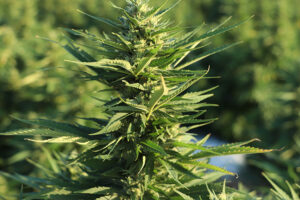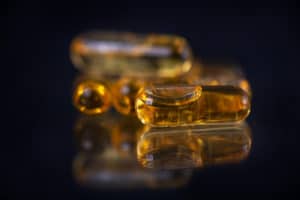The CBD boom continues to expand throughout the US. Research is ongoing while state and federal laws vary and change in their views. The evidence is mounting, but nothing feels conclusive. There are so many small and large businesses offering CBD products, so how do you know what’s medically safe? You’re not alone in the confusion, and good on you for responsibly doing your research.
This article will walk you through the known CBD oil side effects, potentially harmful interactions, and note some of the reported benefits. As always, when endeavoring new medicinal treatments or drugs, speak with a trusted medical professional first and foremost. Expert counsel should always be taken advantage of when possible.
What Are CBD Oil Side Effects?
Below is a list of some reports of CBD oil side effects. We’ll go through each one, describe the conditions, and look into some verified lab studies so that you can make an informed choice.
- Changes in appetite
- Changes in weight
- Drowsiness and fatigue
- Diarrhea
- Anxiety
- Dizziness and lightheadedness
- Dry-mouth
- Nausea and vomiting
In addition to these, there are certain situations where adverse reactions or potential harm can occur, such as when breastfeeding, for children under two years old, and for those with movement disorders.
Most reported side effects are minimal when compared to pharmaceutical prescription drugs. Modern medical science recognizes the presence of an endocannabinoid system (ECS) that permeates our entire physiology. Experiencing unpleasant side effects does not mean that CBD oil “doesn’t work” for you.
Change in Appetite
A change in appetite is one of the more commonly reported side effects, though there are mixed results in the studies whether CBD increases or decreases it. The endocannabinoid system (ECS) is inherent in the human body, however CBD oil is known to be reactive with other substances that might affect your gut.
Change in Weight
A change in appetite naturally leads to a change in weight. As your system and metabolism adjust, you may experience some fluctuations in weight. Although we’re calling this a side effect, CBD oil has been known to help with weight loss.
Drowsiness
CBD oil is known to affect our sleep. For that reason, it’s especially desirable for insomniacs. Fatigue and drowsiness, however, might accompany CBD use as a side effect.
Again, CBD oil affects each person differently. Some cases even show the opposite effect. Some reports claim that CBD helps make them feel more awake, energized, and alert. The instances of drowsiness being reported as a side effect tend to follow a particularly high dose of CBD.
Diarrhea
Diarrhea is a commonly reported side-effect of taking too much CBD oil. Important to note is that this doesn’t mean you and CBD oil don’t mix. Additives or other present ingredients may be the culprit. That said, studies have shown that diarrhea is one of the most common side CBD oil side effects.
Anxiety
It may come as a shock to see anxiety listed as one of the side effects of a substance that claims to treat anxiety and depression. Keep in mind that both depression and anxiety, while widely and heavily studied, are nevertheless complex. The effects of CBD are different for each person, and mild cases of anxiety are a commonly reported side effect for a broad range of substances.
Dizziness and Lightheadedness
Dizziness and lightheadedness prove to be rarer and often short-lived side effects of CBD. These usually accompany drowsiness and can be remedied with minimal exercise or caffeine, such as a cup of coffee or tea.
These symptoms also surface whenever there is a drop in blood pressure, which is a known side effect of CBD. If you have high blood pressure or diabetes, CBD may be a good option for you. On the other hand, if you maintain healthy blood pressure, you may experience a drop that leads to lightheadedness. If you’re taking blood pressure medication already, the chances are that CBD is not a good option. Again, something as simple as coffee may help, but be sure to consult with your physician first.
Dry-Mouth
CBD is only one of 110 different cannabinoids found in the cannabis plant. What these all have in common is the side effect of drying out the mouth. ECS receptors reside in your salivary glands, and smoking or taking CBD orally can affect those glands. A simple fix for this issue is to drink more water to experience instant relief.
Nausea and Vomiting
Another surprising side effect is nausea and vomiting, which CBD oil also can help alleviate. To better understand why this happens, follow the mechanism behind these two symptoms. Whenever your body believes you’ve ingested a toxic substance, nausea tends to precede vomiting in order to remove it. That could mean that the CBD oil is not directly responsible. Additives, often found in low-quality products, are more likely the culprit. People with extremely sensitive stomachs may also experience these two side effects.
If you’ve experienced nausea or vomiting from CBD, you may try to a higher quality product that’s FDA approved to ensure accurate labeling. You can also start with a lower dosage if you’re new to CBD, as your body may not be used to it yet.
Avoid During Breastfeeding
Taking CBD oil when breastfeeding is not medically advised. The THC found in marijuana and some hemp products has been shown to have adverse effects. CBD receptors effect and could be detrimental to the brain development of young children. That said, most of this is based on speculation and researchers and medical scientists often disagree. They argue that CBD may even have positive effects as it’s a known promoter of neurogenesis and has other neuroprotective properties. As always, consult with your pediatrician or other trusted health professional before breastfeeding while using CBD oil.
Avoid For Children Aged Two and Younger
Like breastfeeding, CBD oil has not been shown to have adverse reactions in children aged two and younger, but this recommendation comes by way of a lack of quality regulation, proper labeling, and the effects of THC which should not be, but sometimes still is, present in CBD products. At such an early stage of development, the risks of inducing additives or contaminants are serious. If you don’t want to give up CBD, full-spectrum hemp oil generally holds to higher quality standards and more powerful medicinal properties.
Dangers For Those With Movement Disorders
People who suffer from dystonic movement disorders (or have in the past) should exhibit extra caution when using CBD oil. Studies show that a drop in psychomotor, or the speed of thought processes and physical movements, can occur. Speak with a health professional, take care to apply proper dosage, and monitor your body’s reaction to whatever substances or medications you take.
Potential Liver Toxicity in Extremely Large Doses
Cannabis with high amounts of CBD or very high doses has shown to potentially cause liver damage. Mostly, this isn’t an issue if you’re paying attention to your dosage. At the same time, CBD can benefit your liver and digestion.
To better understand the risk, it’s helpful to note that CBD can disrupt individual enzyme activity. Some of these enzymes are particularly useful in helping your metabolism manage pharmaceutical prescription drugs. If you’re suffering from liver disease, seek medical counsel before taking CBD products.
Interactions
Other serious health risks can accompany the use of CBD. Studies have shown numerous potentially harmful interactions that prove important to be aware of. Before taking CBD, speak with a trusted health professional.
Expert counsel is especially crucial if you’re currently on prescription medications that have a grapefruit warning. CBD and grapefruit have similar enzyme disruption properties that can lead to harmful complications when your body works to metabolize pharmaceutical drugs. If you’re interested to learn more about the effects of grapefruit (or CBD) with certain medications, you can view this list of medical conditions.
For a quick look at what conditions often come with prescription medications that don’t react well with grapefruit or CBD, check out these different types of prescription and over-the-counter drugs. If you take any of these kinds of medications, check the grapefruit warning before taking CBD to avoid negative interactions.
● Pain relievers
● Antibiotics
● Blood thinners
● Antihistamines
● Blood pressure medications
● Migraine medications
● Mood medications (for anxiety, depression, etc.)
● Corticosteroids
● Anticancer medication
● Cholesterol medications
● Erectile dysfunction medications
● Heart rhythm medications
● Antiepileptic drugs (AEDs)
● GI medications (GERD and nausea)
● Immunosuppressants
● Prostate medications
CYP3A4, CBD, and Prescription Medication
CYP3A4 may not have a catchy name but it’s a crucial enzyme for metabolizing prescription pharmaceuticals. CBD can disrupt this enzyme and cause your liver to suffer and lead to further health complications.
In addition to inhibiting vital enzymes necessary for metabolizing prescription medication, studies show that CBD can also affect how your system balances prescribed drugs.
If you take a prescription, the importance of seeking expert medical counsel cannot be overstated before trying CBD. Compared to the side-effects listed above, the more substantial risks lie in adverse reactions your body to CBD in combination with lab-created pharmaceuticals.
Safe CBD Practices
Always ask for advice from a trusted medical professional when undertaking new medicinal substances. Be sure to take your own measured steps in seeking quality products as well. The CBD industry is young in comparison to other food and drugs. Further research, testing, and approval by the Federal Food and Drug Administration (FDA) have yet to set in and the FDA is not known for its speedy approval of new drugs. Companies, large and small, seek to make a profit.
Here, we’ll get into some best practices to adopt that will help you avoid unwanted side effects and harmful interactions.
First, let’s go a little deeper into the difference between hemp oil and CBD oil. These are commonly confused, yet they come from two different species of plants. Hemp oil is extracted from Cannabis Sativa seeds and does not contain THC. CBD oil comes from the flower, stem, bud, and leaves of the Cannabis Indica plant. Full-spectrum hemp oils deliver cleaner and more profound hemp benefits than CBD isolates do.
According to the FDA, CBD is unregulated and is not deemed completely safe or effective. Medical science has not caught up in their documentation to everyday use cases that report tremendous benefits. To avoid CBD that may be mislabeled and contain harmful contaminants, we recommend that you buy domestic American products.
Organic products also receive a higher assurance of a pure product due to the strict guidelines set by the United States Department of Agriculture. It includes not only strict rules regarding the present ingredients, but also the materials and practices used in growing and harvesting the plant itself.
Read the label of your chosen CBD products. If it’s not organic, be wary of pesticides which have been found in harmful abundance in some instances.
While smoking and vaping are not unsafe modalities of CBD intake, vaping on its own has shown to be potentially harmful in some cases. Just as CBD is a relatively new development in the world of health and wellness, so is vape technology. Many people enjoy vape pens and products as an easy means of experiencing CBD and have reported the standard health benefits.
Last on the list of safe and effective practices is to take precautions when purchasing CBD products from Amazon.com. The free nature of e-commerce allows it to fly under the radar of proper labeling and regulations. Some prominent health professionals have spoken out against purchasing CBD from Amazon for this reason. It’s advisable to go directly to a company that you’ve researched yourself or had recommended by your doctor.
Benefits of CBD Oil
Serious concerns are yet to be addressed regarding CBD oil, but studies show that, generally, it is safe and offers a myriad of health benefits.
Some common benefits of CBD include:
- Pain treatment
- Anxiety and depression reduction
- Cancer symptom reduction
- Acne help
- Neurological protection
- Heart benefits
Below, we’ll explore each claim backed by scientific studies.
1. Pain Treatment
Marijuana has been used for over a thousand years to help with pain. Medicinal use has been legalized for this reason. Both CBD and THC are present in marijuana and account for the pain-relieving effects. Athletes, medical patients, and people with chronic pain have enjoyed these benefits that have put CBD on the medical map.
A particular study shows that your endocannabinoid system regulates some bodily functions, potentially including pain, immune system response, appetite, sleep, memory, mood, reproduction, and fertility.
CBD has also been proven to help with pain, as well as sleep, for those who have rheumatoid arthritis.
2. Anxiety and Depression Reduction
CBD’s medicinal properties offer an alternative to prescription drugs. Anxiety and depression treated through modern allopathic medicine by way of pharmaceuticals tends to have a host of unwanted side-effects. Some of these drugs maintain terrible addictive qualities as well.
When it comes to treating anxiety, dosage is a crucial element. Too little or too much won’t offer the desired benefit. A study shows that around 300 mg of CBD helped noticeably reduce anxiety. When starting to take CBD, consult with your doctor and be sure to start with a smaller dosage to give your body time to adjust.
Another study shows that CBD can especially help with anxiety in children, those with insomnia, and people who have Post-Traumatic Stress Disorder (PTSD). CBD contains antidepressant qualities, too. Medical research reveals that it does so by regulating mood and can promote healthy social behavior. Some research has shown that CBD can even help with schizophrenia and other mental disorders. This is due to antipsychotic effects.
3. Cancer Symptom Reduction
Chemotherapy drugs may not react well within your system along with CBD. Be sure to consult your health care professional first. However, if you are undergoing chemotherapy, CBD has shown that it can help to prevent nausea and vomiting, among other symptoms.
While THC holds pain-relieving qualities on its own, THC in combination with CBD has proven far more effective in treating cancer symptoms. Research regarding anti-tumor effects has shown CBD’s ability to protect against the spread of cancer to various parts of the body, including the breast, prostate, brain, colon, and lungs.
In addition to lessening symptoms of cancer, CBD, especially from the Indica strain, contains potential anticancer properties. Further studies focusing on breast cancer cells imply that CBD helps inhibit cancer’s growth and protect patients against breast cancer.
4. Acne Help
The anti-inflammatory properties of CBD oil have been shown to reduce acne. Acne, by nature, is an inflammatory response. Sebum, the oily substance produced, is responsible for outbreaks. CBD oil helps lessen the body’s inflammatory response and reduce Sebum production. That means that CBD not only helps treat current acne, but also helps to prevent it altogether.
5. Neurological Protection
CBD’s ability to protect your brain from encroaching neurological orders continues to expand. One study shows how CBD was used to help with epilepsy. Another study exhibits CBD used for difficult-to-treat multiple sclerosis. While not the same as epilepsy, the link of neurodegenerative disorders is present.
CBD has even been used to help treat Parkinson’s disease as well as Alzheimer’s. The effect of CBD oil on other neurodegenerative disorders is constantly being researched. As this research continues, the evidence becomes ever more apparent: your nervous system likes CBD.
6. Heart Benefits
Your circulatory system plays a vital role in heart health. CBD has been shown to fight against stroke, heart attacks, and help reduce high blood pressure. The endocannabinoid system acts as a catalyst for efficiency to the other systems and CBD has been shown to help optimize blood flow and even regulate blood pressure to healthy levels.
Further studies show improved heart health using CBD oil can help treat diabetes. Studies on diabetes suggest CBD as a viable option for treatment. The study carried out on mice not only significantly lowered occurrences of diabetes, but also produced an impressive anti-inflammatory effect
7. Other Benefits of CBD
Natural medicine such as CBD oil touts a couple of impressive benefits that you won’t find with pharmaceutical drugs. One advantage of being a natural substance is that our bodies are more attuned to it. Lab-created substances require more extensive testing and are generally regarded as foreign to your immune system.
This doesn’t mean you should skip seeking medical advice, or jump straight into a high dosage of CBD. It just means that side-effects, adverse reactions, addiction, and long-term damage to your gut and nervous system are less prominent.
The second benefit of natural remedies is that they tend to hold a far greater number of health benefits. Pharmaceutical prescription drugs deliver a potent and highly focused effect, usually on specific symptoms. Conversely, the benefits of CBD and other plant-based medicines tend to reveal their benefits over the course of time and use.
As research and regulation continue to advance the understanding and sale of CBD products, you’d do well to keep an open mind in terms of treatment. Listen to your health care professional, but listen to your body as well. If something doesn’t feel right, or you discover a new benefit, so you can continue to make choices that only benefit your health.
Those suffering from substance abuse may also find benefits in using CBD. As stated earlier, CBD works on the body’s nervous system and can help change and correct the brain’s wiring. It can even be used to help reduce dependence on a drug as potent and addictive as morphine. CBD has significantly alleviated drug-seeking behavior for the staunchest addicts.
Conclusion
Risks do exist when it comes to CBD. Most CBD oil side effects are mild and pose no cause for worry. Keeping up with blogs and headlines is a great way to learn about new treatments. Many have not been subject to medical studies, but that doesn’t mean there aren’t benefits to be enjoyed.
FAQs About CBD Oil Side Effects
Question: Are there any risks in taking CBD oil?
Answer: Like in any drugs, overdosage is a risk in taking CBD oil. Aside from that, there are some side effect that you should be familiar like changes in appetite, drowsiness and fatigue, anxiety, and diarrhea
Question: Why does taking CBD oil affect my appetite?
Answer: A change in appetite is one of the more commonly reported side effects, though there are mixed results in the studies whether CBD increases or decreases it. The endocannabinoid system (ECS) is inherent in the human body, however CBD oil is known to be reactive with other substances that might affect your gut.
Question: Does CBD oil cause diarrhea?
Answer: Diarrhea is a commonly reported side-effect of taking too much CBD oil. Important to note is that this doesn’t mean you and CBD oil don’t mix. Additives or other present ingredients may be the culprit.
Question: Why should you avoid taking CBD while breastfeeding?
Answer: Taking CBD oil when breastfeeding is not medically advised. The THC found in marijuana and some hemp products has been shown to have adverse effects. CBD receptors effect and could be detrimental to the brain development of young children.
Question: Can you take CBD oil if you have movement disorders?
Answer: People who suffer from dystonic movement disorders (or have in the past) should exhibit extra caution when using CBD oil. Studies show that a drop in psychomotor, or the speed of thought processes and physical movements, can occur.
Question: Should you get medical advice before taking CBD?
Answer: Always ask for advice from a trusted medical professional when undertaking new medicinal substances. Be sure to take your own measured steps in seeking quality products as well. The CBD industry is young in comparison to other food and drugs.
Question: What are the Benefits of CBD oil?
Answer: Some common benefits of CBD include pain treatment, anxiety and depression reduction, cancer symptom reduction, acne help, neurological protection, and heart benefits.
Question: Can CBD oil help to reduce acne?
Answer: The anti-inflammatory properties of CBD oil have been shown to reduce acne. Acne, by nature, is an inflammatory response. Sebum, the oily substance produced, is responsible for outbreaks. CBD oil helps lessen the body’s inflammatory response and reduce Sebum production.






